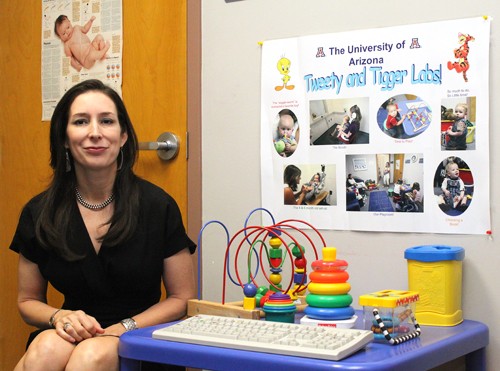There is another reason to appreciate naps, thanks to Rebecca Gomez, Richard Bootzin and Lynn Nadel of the UA psychology department.
The three professors have recently conducted research that shows that infants who took naps before or after learning something new were able to retain that knowledge and apply it more effectively.
The researchers also found that infants who did not nap after a learning experience did not apply their newly acquired knowledge.
“”When you think about learning in class, you have to extrapolate what you have learned because you won’t get the exact same question on an exam that you heard in a lecture,”” said Gomez, a psychology professor.
Gomez explained the importance of knowledge application in simpler terms:
“”Take 6-year-olds, for example. They typically learn how to write in block letters, but they also have to generalize to cursive as well,”” Gomez said.
Gomez and her colleagues played recordings of phrases and sentences from an artificial language to about 50 infants. They repeated simple phrases, such as “”pel-wadim-jic””, until the babies became familiar with them.
The infants who napped after the exercise learned something more general about language or created a rule that allows them to apply what they have learned, the researchers found.
“”Infants, after napping, take what they have learned to something not identical to what they have already seen,”” Gomez said. “”They don’t get stumped like the infants who don’t naps.”” Only infants who slept in four-hour intervals were able to retain information a day later, Gomez said.
Infants have mostly rapid eye movement sleep, given how their brains are developed at that point, according to Regent Professor Nadel.
“”And they have to get some of that sleep within a reasonable amount of time after inputting information in order to be able to do abstracting work on it,”” Nadel said. “”If they don’t sleep within four to eight hours, they probably just lose the entire thing.””
These results can’t be fully applied to adults.
“”Infants are not like adults,”” Gomez said. “”They have to sleep after a learning experience.””









